
Derek W. H. Thomas
Derek W. H. Thomas is a Reformed pastor and theologian known for his teaching, writing, and editorial work. He is currently the senior pastor of First Presbyterian Church of Columbia, SC and Chancellor’s Professor of Systematic and Pastoral Theology at Reformed Theological Seminary. The reviews and recommendations on this site under his name are drawn from the "Recommended" commentaries listed in his The Essential Commentaries for a Preacher's Library (2nd ed.; updated with John Tweeddale), published by First Pres Press and used with permission.
Occupation
Chancellor’s Professor of Systematic and Pastoral Theology at Reformed Theological Seminary
Education
PhD (University of Wales)
Libraries


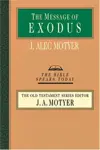

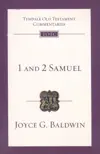

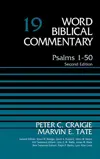

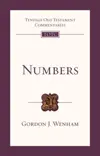

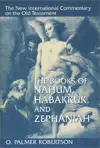

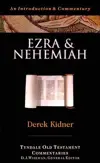

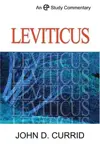

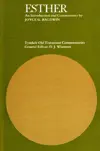

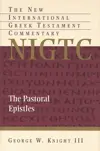

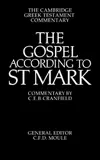

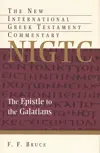

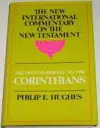

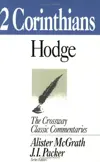

![Colossians, Philemon [Withdrawn]](https://bestcommentaries.com/images/bookthumbs/4019-thumb.webp)
![Colossians, Philemon [Withdrawn]](https://bestcommentaries.com/images/bookthumbs/4019-thumb.webp)
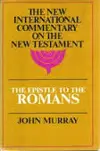


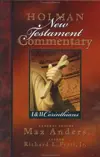

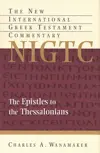

Reviews
More Than Conquerors: An Interpretation of the Book of Revelation. Baker Books, 1998.
Very accessible and readable. The opening section is crucial reading for interpreting apocalyptic literature. Amillennial.
The Book of Revelation. NIGTC. Eerdmans, 1998.
A monumental and comprehensive work. Amillennial.
Hebrews. CCC. Crossway, 1998.
A lifetime accomplishment. One of the finest and most exhaustive expositions ever written. The story is told that upon completion Own is said to have exclaimed, "Now my work is done; it is time to die!"
The Letter to the Ephesians [Withdrawn]. PNTC. Eerdmans, 1999.
A masterful work. Consult before Lincoln.
Ephesians. WBC. Thomas Nelson, 1990.
This is regarded as one of the best commentaries on Ephesians despite the face that Lincoln does not think Paul wrote it! For discerning readers only, then.
Ephesians. CCC. Crossway, 1994.
Still one of the best commentaries to turn to and the most reliable guide to put into the hands of the average reader.
Galatians. REC. P&R Publishing, 2005.
A model commentary: expositional, pastoral, confessional, and Christological.
Galatians. NAC. Broadman & Holman, 1994.
A wonderful commentary written by an accomplished church historian who shows himself an able biblical scholar.
I and II Corinthians. HNTC. Broadman & Holman, 2000.
A nice blend of exposition, theology, and application.
The Second Epistle to the Corinthians. NICNT. Eerdmans, 1962.
Has been replaced by Paul Barnett in the NICNT series.
I and II Corinthians. HNTC. Broadman & Holman, 2000.
A nice blend of exposition, theology, and application.
Romans. BECNT. Baker Academic, 1998.
Coupled with Murray on the one hand and Moo on the other, you will gain a firm exegetical and theological grasp of a text. Note that since his commentary, Schreiner has changed his view from seeing righteousness as 'transformative' to 'forensic,' see Paul: Apostle of God's Glory in Christ (Downers Grove; IVP, 2001), p. 192.n2.
The Epistle to the Romans. 2 Vols. NICNT. Eerdmans, 1965.
Though replaced by Moo, this ranks as one of the finest Reformed commentaries ever written. Murray was a master exegete and brilliant systematician. Every shelf should have a copy of this commentary.
The Epistle to the Romans. NICNT. Eerdmans, 1996.
A colossal commentary (over a thousand pages!). Moo's interpretation of Romans 7 is definitely not recommended; nevertheless, his commentary has already become a standard and has more to offer than Cranfield. See his contribution on Romans in the New Bible Commentary, 21st edition for shorter treatment.
The Book of Acts (Rev. ed.). NICNT. Eerdmans, 1988.
A classic. Strong on history and more accessible than his Greek commentary [1990, IVP].
The Gospel of John: A Theological Commentary. Eerdmans, 1997.
A masterful redemptive-historical commentary.
Luke. NIVAC. Zondervan, 1996.
Yes, a third commentary on Luke! This will be the most helpful for application.
Luke. 2 Vols. BECNT. Baker Academic, 1994.
Bock is a preeminent scholar on Luke. These two gigantic commentaries are to be preferred to Marshall. There is a great deal of theological comment in these volumes which make them very useful for sermon preparation. However, Bock does not always come down on one side in issues of controversy. He is a progressive dispensationalist.
The Books of Nahum, Habakkuk, and Zephaniah. NICOT. Eerdmans, 1990.
A masterfully done commentary. Nicely weds a redemptive-historical hermeneutic with a pastor's touch.
The Books of Nahum, Habakkuk, and Zephaniah. NICOT. Eerdmans, 1990.
A masterfully done commentary. Nicely weds a redemptive-historical hermeneutic with a pastor's touch.
The Books of Nahum, Habakkuk, and Zephaniah. NICOT. Eerdmans, 1990.
A masterfully done commentary. Nicely weds a redemptive-historical hermeneutic with a pastor's touch.
Hosea–Jonah. WBC. Thomas Nelson, 1987.
Gomer is presented typically as a harlot because she is a member of wayward Israel not because she was immoral. Clever but not convincing! Nevertheless, a very good commentary.
Daniel. WBC. Thomas Nelson, 1989.
Despite a 2nd century date and viewing the visions as pseudonymous 'quasi-prophecy,' deals ably with the text.
The Book of Ezekiel. 2 Vols. NICOT. Eerdmans, 1998.
Technical and thorough. However, his 'Theological Implications' are proportionally brief. Though a wealth of information, a busy pastor may find Duguid a more helpful tool.
Jeremiah and Lamentations: From Sorrow to Hope. PtW. Crossway, 2001.
A superb commentary. Includes a helpful index of sermon illustrations.
The Book of Jeremiah. NICOT. Eerdmans, 1980.
Provides much more detailed exegetical and historical discussions than Ryken. The two compliment each other nicely.
The Book of Isaiah. 3 Vols. Eerdmans, 1969.
Young has now been replaced in the NICOT series by John N. Oswalt, a sensible commentary worth consulting, but is still preferred.
The Prophecy of Isaiah. InterVarsity Press, 1998.
A heavier and more detailed study than his commentary in the TOTC.
The Book of Ecclesiastes. NICOT. Eerdmans, 1997.
Takes Qohelet as 'a type of pseudonym.' Maintains two speakers 1) Qohelet (1:12-12:7) and 2) an unnamed individual (1:1-11 and 12:8-14). Interesting but too idiosyncratic.
Ecclesiastes. GEN. Banner of Truth, 1981.
Bridges was a first -class scholar and pastor. Though dates, his keen exegesis and searching application show that commentaries can be both scholarly and practical.
The Book of Proverbs. 2 Vols. NICOT. Eerdmans, 2005.
A lifetime achievement. This historio-grammatical commentary is sure to set the standard for commentaries on Proverbs for years to come. A definitive work.
Proverbs. CCC. Crossway, 1846.
Bridges was a first -class scholar and pastor. Though dates, his keen exegesis and searching application show that commentaries can be both scholarly and practical.
Studies in the Book of Psalms. J. B. Lippincott, 1866.
Still one of the best. Especially helpful are his 'doctrinal and practical remarks.'
Psalms 1–50 (2nd ed.). WBC. Thomas Nelson, 2004.
These volumes are uneven in quality and orthodoxy. Craigie does not accept the imprecations in the psalms as inspired: "These psalms are not the oracles of God." p. 41. See War Psalms of the Prince of Peace, below, for a good treatment of the imprecations of the Psalms. These three volumes from the Word Biblical Commentary are included because of the great deal of modern research in psalm genre this century. A modern commentary is, therefore, essential. But little sermonic help will be found in these volumes.
Psalms 101–150 (Rev. ed.). WBC. Thomas Nelson, 2002.
This commentary has serious weaknesses in setting the psalms in a New Testament context.
Job. 3 Vols. WBC. Thomas Nelson, 2009.
This is the most comprehensive commentary on Job 1-20 available. Volumes 2 and 3 are still pending. Clines deserves to be read thoroughly, though there are times when he is irritatingly defensive on Christological implications in the 'big' texts in Job. For a summary, consult his commentary in the New Bible Commentary, 21st Century Edition, pp. 459-484.
Esther and Ruth. REC. P&R Publishing, 2005.
Look for this series to set the standard for reformed, expository commentaries.
Esther. TOTC. InterVarsity Press, 1984.
A short commentary; pays close attention to literary and historical aspects.
Ezra and Nehemiah. TOTC. InterVarsity Press, 1981.
Succinct. Helpful appendices on historical matters.
The Books of Ezra and Nehemiah. NICOT. Eerdmans, 1983.
A serious commentary; takes a traditional approach to dating, theology, etc.
1 and 2 Chronicles: A Mentor Commentary. Ment. Mentor, 2006.
Excellent! Keeps the theology of the text central. Identifies 28-major biblical-theological motifs.
2 Chronicles. WBC. Thomas Nelson, 1987.
Masterful exegesis. His interaction with Samuel-Kings and Chronicles is thorough; however, you may be left wanting for application of the text.
1 Kings: Wisdom and the Folly. FB. Christian Focus, 2003.
A theological expository commentary
2 Kings: The Power and the Fury. FB. Christian Focus, 2005.
A theological expository commentary
1 and 2 Samuel. TOTC. IVP Academic, 2008.
This is a brief commentary, but other commentaries, e.g. the two by Klein and Anderson in the Word Biblical Commentary Series, are heavily into text and literary criticism and have very little to help busy preachers.
The Book of Ruth. NICOT. Eerdmans, 1989.
A substantial commentary in size and achievement.
Esther and Ruth. REC. P&R Publishing, 2005.
Look for this series to set the standard for reformed, expository commentaries.
Judges: Such a Great Salvation. FB. Christian Focus, 2000.
An exemplary "theo-centric exposition" - full of anecdotes and applications. Those looking for more background information, see Block.
The Book of Joshua. NICOT. Eerdmans, 1981.
It is difficult to recommend a single commentary on Joshua, and this one is not as good as it could be.
Joshua: No Falling Words. FB. Christian Focus, 2000.
Sets the standard for how to expound and apply historical narrative.
The Book of Deuteronomy. NICOT. Eerdmans, 1976.
Especially helpful on the role of the covenant in Deuteronomy.
Numbers. TOTC. InterVarsity Press, 2008.
Overall, a good, brief exposition of the text. While his introductory discussions are solid (esp. on typology), his discussion on the transmission of the text is at points muddied.
The Book of Leviticus. NICOT. Eerdmans, 1979.
Ambivalent regarding dating but exegesis of text is extremely useful.
Leviticus. EPSC. Evangelical Press, 2005.
Clearly and cogently presents Leviticus as a series of directories for public worship and establishes the importance of Leviticus for the NT. Especially helpful on the Holiness Code.
The Message of Exodus. BST. InterVarsity Press, 2005.
A superb commentary. Scholarly, simple, and sensible. While focusing on the text his footnotes will point eager students in the right direction for further study.
Exodus. 2 Vols. EPSC. Evangelical Press, 2000.
In a refreshing way pays close attention to the text without getting bogged down in critical discussions. Helpful section on the Decalogue in volume 2.
Genesis. 2 Vols. EPSC. Evangelical Press, 2003.
Easy to read yet biblically robust expositions that seek to bridge the gap between technical and popular commentaries. Upholds a literal, six-day creation account and provides a helpful introduction to 'seed-theology.'
Genesis. 2 Vols. WBC. Thomas Nelson, 1987.
It is difficult to imagine a less user-friendly layout than the Word Biblical Commentary Series. The series is uneven and occasionally goes overboard in literary/source criticism. But at least one up-to-date, critical commentary on Genesis should be on our shelves, and this is about the best. Maintians a literary view of Genesis 1.
